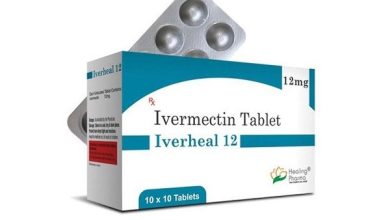When it comes to sexual dysfunction, what role does alcohol play?
When it comes to sexual dysfunction, what role does alcohol play?

There are 14.0 grimes (1.25 tablespoons) of alcohol in an average American drink in the United States. If you’re in the United States, this is the equal of one regular drink. For the most part, this much alcohol is present in:
• Beer with a capacity of 12 fluid ounces .malt liquor with a capacity of 8 ounces.
At least 5 ounces of wine.
The recommend amount of distill spirits or liquor that is 80 proof (the alcohol content is 40%) is 1.5 ounces (e.g., gin, rum, vodka, whiskey).
Excessive drinking is defined as “drinking too much.”
There are many different types of excessive drinking, including binge drinking, heavy drinking, and drinking by pregnant women or minors under the age of 21.
Binge drinking, the most prevalent kind of excessive drinking, is defined as having a significant number of drinks consumed in a short amount of time.
If you are facing the ED problems due to the Alcohol then buy vidalista 40 mg online and buy vidalista 60 mg online medicine could be very helpful to treat it. You can order it online from buyrxsafe.com and get delivered at your door.
Drinking four or more drinks in one sitting is consider excessive for females.The consumption of five or more alcoholic beverages or more in one sitting by a man.
• Women who drink 8 or more drinks a week are consider to be heavy drinkers.
• 15 or more drinks per week or more for males.
There is no such thing as a true alcoholic among the majority of persons who overindulge in alcohol.
Dehydration and increase urination may be cause by drinking alcohol, which is a diuretic. Angioplasty, a hormone that causes blood vessels to constrict, may be elevate in people who are dehydrated. Penis blood flow may be restrict by angioplasty.
When it comes to alcohol use, what is consider moderate?
A daily consumption of no more than two drinks for men and one drink for women is recommend in the Dietary Guidelines for Americans on days when alcohol is consume.
Adults who have achieved the legal drinking age have the freedom to choose whether or not to consume alcoholic beverages.4 People who do not consume alcohol are not encouraged to start doing so by the Guidelines.
And they recommend that individuals who are of legal drinking age limit their use of alcoholic drinks since it is healthier for their health.
Some folks should abstain from drinking at all. Among them are individuals who fall under the following categories:
• Under the age of 21.
• Pregnant or may be pregnant.
When you’re doing anything that requires a high level of coordination, dexterity, and attention to detail, like driving or getting ready to drive.
If you’re already taking a medicine that might be adversely affect by alcohol, you should avoid drinking alcohol altogether.Having a wide range of medical issues.
Individuals in the process of sobriety recovery or who are unable to regulate their drinking in take.You may decrease your risk of harming yourself or others by following the Dietary Guidelines.
Short-term health hazards.
Excessive alcohol consumption has rapid consequences that raise the risk of a wide range of health problems. Binge drinking is the most common cause of these symptoms, which include the following:
Crash-relate injuries, such as broken bones and burns.
• Homicide, suicide, sexual assault, and violence against intimate partners are all forms of violence.
High blood alcohol levels cause alcohol poisoning, which is a medical emergency.
Sex with several partners or without protection are both examples of risky sexual conduct. A woman’s health may be jeopardize if she engages in these practices, which may lead to unexpected pregnancy or the transmission of sexually transmitte illnesses such as HIV.
Risks to Long-Term Health
• High blood pressure, heart disease, stroke, liver disease and digestive issues may all result from long-term excessive alcohol use.
• Breast, mouth, throat, esophagus, voice box, liver, colon, and rectum cancers.
Having a weaken immune system makes it more likely that you’ll become ill.Dementia and low academic achievement are both examples of issues with memory and learning.
Depression and anxiety are two common conditions associate with poor mental health.
• Family issues, work-related issues, and unemployment are all examples of social difficulties.
• Addiction to alcohol or alcohol use disorders.
You may lower your risk of both short-term and long-term health problems by limiting your alcohol use.
In what ways might a drink affect your ability to get an erection?
It is possible to have a momentary difficulty to achieve an erection after drinking any kind of alcohol. An alcohol-induced central nervous system depression and slow information transmission between the brain and penis, according to a research publish in 2018, was discover in 2018. As a result, the penis may become less sensitive.
Males who use alcohol, according to 1998 study Trust Sources and more current animal studies, had lower testosterone levels in their bloodstreams. Your penis relaxes when you produce nitric oxide, which is a critical chemical in testosterone insufficiency.Alcohol has long-term repercussions.
An inability to get an erection may be the result of nerve damage, an increase risk of heart disease, and blood vessel damage caused by long-term heavy drinking.
• A study review in 2021
Regular alcohol drinking has been link to an increase risk of ED, according to an authoritative source.
• Alcohol’s other affects on sexual performance
• Alcohol may have a number of effects on a person’s ability to engage in sexual activity.
In a 2021 research from a reputable source in India, there were 100 guys with alcohol dependency syndrome who participated. Sexual dysfunction was observe in 48 of the subjects, according to the study. Of the 48:
A reduce sex desire was not by 87.5 percent of respondents, a malfunction of sexual arousal by 79.1 percent, erectile dysfunction (ED) by 58 percent, and difficulties attaining orgasm by 54 percent.





